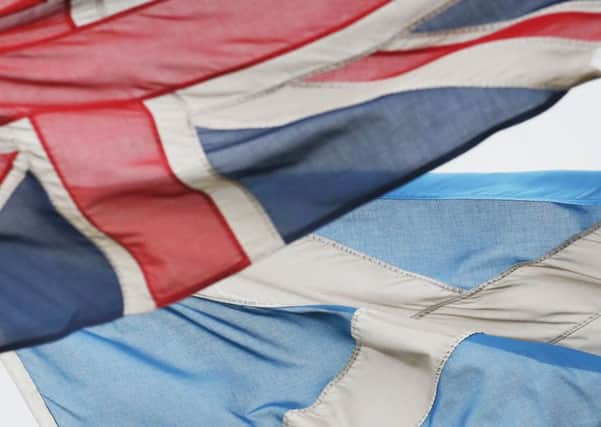Scotland votes: Key questions answered


• What date will the Scottish independence referendum be held on?
Scots will go to the polls in the historic vote to decide the nation’s future on Thursday, 18 September, 2014.
Advertisement
Hide AdAdvertisement
Hide Ad• What will be the Scottish independence referendum question?
The question that will be put to voters will be “Should Scotland be an independent country?”.
• What is the voting age in the Scottish independence referendum?
The Scottish Independence Referendum (Franchise) Act gave 16- and 17-year-olds the right to vote in next year’s referendum.
• What would happen to the oil?
Advertisement
Hide AdAdvertisement
Hide AdIn 2011/12 alone, about 94% of the UK’s North Sea revenues - about £10.6 billion – were generated in Scottish Waters. It is widely expected that an independent Scotland would take a geographical share based on a “median line”. The Government Expenditure and Revenue Scotland (GERS) Report bases the Scottish boundary of the UK continental shelf on the median line principle as employed by the UK government in 1999. Other alternatives are possible.
• What currency would an independent Scotland have?
The Scottish Government has said that it will keep the Pound as part of a formal monetary union with the rest of the UK.
• Would Scotland be allowed in the EU?
Scotland would be a member of the EU; negotiations in the period between a Yes vote in september 2014 and Scotland becoming independent in March 2016 would be over timing and terms.
• What would happen to Scotland’s share on the national debt?
Advertisement
Hide AdAdvertisement
Hide AdMost observers have so far worked on the assumption that, in negotiations after a “yes” vote, Scotland would take on a per capita share of that debt.
On this basis, Scotland’s debt as a proportion of national wealth (GDP) would be smaller than the UK’s, and smaller than most of the original 15 EU member states. Furthermore, around 90% of UK debt has been incurred since 1980, a period during which Scotland’s public finances have been stronger than the UK’s. So Scotland could in fact argue that its share of debt should reflect the comparative contribution it has made to the treasury and this would reduce our share of debt further, by around one third.
• What would happen to the Trident nuclear deterrent?
The Scottish Government has said it would have the UK’s nuclear weapons removed from an independent Scotland as quickly as possible. Some defence analysts have claimed that to transfer the subs, warheads and the huge infrastructure out of the country could take a number of years. However, the Scottish Affairs Committee at Westminster accepted that they could be disarmed in days, and removed within months.
• Would Scotland have its own constitution?
A new constitutional convention would be set up after the first elections of an independent Scotland in 2016 to draft the document, which alongside the Scottish government would include contributions from political parties, civic society, business interests, trade unions, local government and others. Most importantly, the whole population could be involved in the discussions about Scotland’s constitution. Membership of the convention will be decided by the first independent parliament elected in 2016, learning from international best practice.
Advertisement
Hide AdAdvertisement
Hide Ad• What would happen to those in Scotland with a British passport?
The Scottish Government has expressed support for the possibility of dual citizenship; the UK government currently does not exclude dual nationality for those holding citizenship of any other country.
• What would happen to the Union Jack / Union flag?
A state can have whatever flag it likes, so therefore if the government of the rest of the UK wishes to keep the Union flag that would be a decision for it. An independent Scotland would adopt the St Andrew’s Cross/Saltire as its national flag.
• Will Scots living in England be able to vote in the referendum?
Advertisement
Hide AdAdvertisement
Hide AdThe franchise used for Scottish Parliament elections will also be used for the referendum which means that only those registered to vote in Scotland can take part, with the addition of 16 and 17-year-olds. Special provisions apply to members of the armed forces.
• What would happen to the Monarchy?
The Scottish government policy is for an independent Scotland to retain Queen Elizabeth as head of state and the country remaining within the Commonwealth. Any future change would be a matter for the people of Scotland to decide.
• Would taxes be higher in Scotland?
Finance Secretary John Swinney said he does not see personal taxation (e.g. income tax/national insurance) rising following independence. He also said there would be no rise in oil industry taxation.
Any future changes would be for the people of Scotland through their elected representatives to decide.
• What would happen to house prices in Scotland?
Advertisement
Hide AdAdvertisement
Hide AdIndependence supporters argue that more powers for Scotland mean that Scottish Governments could for example choose to do more to support the housing market. Those against independence, however, claim that recent surveys have shown that uncertainty caused by the referendum have led to a fall in sales of larger properties.
• Would higher education remain free in Scotland?
The Scottish government insists that it would continue to fund free tuition for Scottish students under independence, if the party remains in power. There is no guarantee that free tuition would remain in place if Labour was to take power at Holyrood under independence.